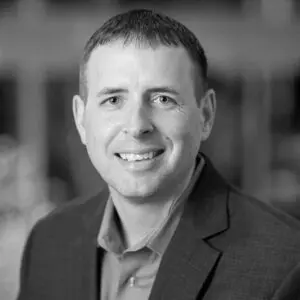News & Insights
News & Insights
Remember, oh-so-long ago, when the pandemic became a political football? Masks, vaccines, social distancing – suddenly, these weren't just public health measures, they were battle lines in a cultural war. Well, buckle up, because that was just the beginning.
We’re headed into a future where distrust in experts is rampant, fueled by social media echo chambers and the growing influence of non-medical influencers.
We're talking about a world where:
- Medical decisions are political: Imagine a society where your political affiliation dictates your stance on vaccines, masks, or even the validity of scientific research. This isn't just about differing opinions; it's about the emergence of distinct health sects, each with their own set of beliefs, "facts," and even preferred providers.
- "Dr. GPT" gets a political platform: We've all seen the rise of online self-diagnosis, but now imagine those searches, amplified by generative AI, are influenced by politically charged algorithms, leading patients down rabbit holes of misinformation and conspiracy theories. It's a recipe for disaster, with potentially life-altering consequences.
- Influencers peddle medical advice (without a license): Forget board certification, in this brave new world, your health advice comes from social media stars, podcast hosts, and even politicians, often with little to no medical expertise. The power of these influencers to shape health choices, particularly among younger generations, cannot be overstated.
In many cases, this is already happening. The politicization of healthcare, fueled by social media and a decline in trust for traditional institutions, is creating fertile ground for the emergence of health sects.
So, what does this mean for healthcare leaders?
- The end of neutrality: Hospitals and health systems can no longer afford to stay silent on social and political issues. Consumers, especially younger generations, expect organizations to align with their values. But taking a stand also risks alienating those with opposing views, creating a no-win situation.
- Navigating a divided world: How do you provide care for patients who reject basic medical science based on their political beliefs? How do you combat misinformation and rebuild trust when traditional sources of authority are dismissed? These are questions healthcare leaders must grapple with sooner rather than later.
- The battle for truth and trust: In a world of alternative facts and competing narratives, establishing trust and credibility will be more important than ever. Healthcare organizations must find new ways to communicate effectively, leverage credible sources, and combat misinformation.
The rise of health sects presents a profound challenge to healthcare. It's not just about treating illnesses; it's about navigating a world where the very definition of health has become a matter of political ideology. The stakes are high, and the time to prepare is now.
We want your take…
- Are the “health sects” playing out in your world?
- How has politicization impacted healthcare from your vantage point?
- Should health brands take a stand on perspectives that have grown increasingly political (e.g., gun violence, climate change, women’s health, reproductive rights, civil rights, housing, etc.)?
- In a world of medical misinformation, who owns health literacy: providers, tech platforms, social media platforms, payors, or the federal government?
- We’ve seen non-medical influencers, politicization of reproductive rights, gun violence, climate change, infectious disease, and so much more… what’s next?
Stay in Touch
Stay in Touch
Receive our updates, industry news and insights.


